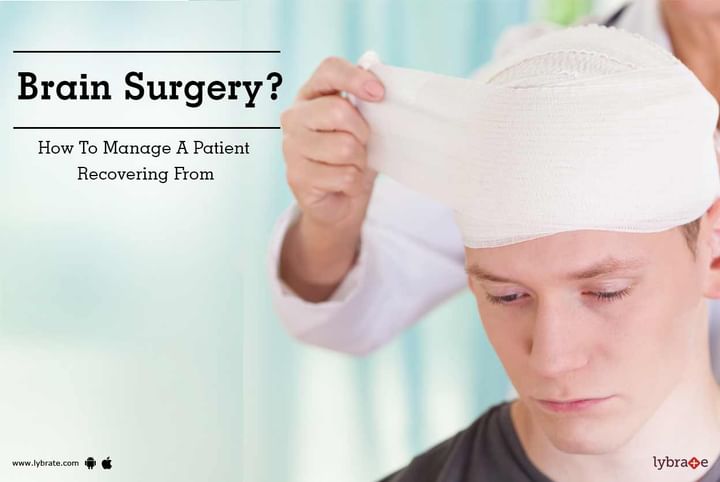How To Manage A Patient Recovering From Brain Surgery?
Undergoing Brain Surgery can be a very traumatic experience, and it is common for many patients recovering from brain surgery to face depression, spells of dizziness, confusion and weakness post the surgery. It can be very critical that family members and friends talk to the patient and be empathetic towards them.
It takes approximately 12-18 months for the brain to heal after a brain surgery and slowly and gradually the patient will regain all his normal functions and get back to his daily routine. However in that time they need the complete support and understanding of their families, as well may need help from therapists. This will help the patient in gaining back their independence as well as confidence in their abilities.
Here are some tips that will help you deal with a patient recovering from Brain Surgery:
-
After brain surgery, a person may feel disoriented and have some speech or understanding disability for a while. Family members and friends are advised to take pause when talking to the patient, so that he/she can easily understand the conversation. Speaking slowly is not recommended, as patients may recognize it and have an emotional outburst or feel hurt.
-
Caretakers and family members should also keep reminding the conversation topic at different points to the patient, so that it is easier for them to participate in the conversation.
-
Family members should also not react adversely in case of emotional outbursts, instead show love and patience to a person recovering from brain surgery.
-
Caregivers should make sure that the person recovering from brain surgery gets enough sleep and rest to recuperate.
-
People interacting with someone recovering from brain surgery should understand that the person's ability to learn and remember will improve daily, and any lapses in attention by the patient are not caused by any act of obstinacy. Your care and understanding will be essential for a person to recover.
-
Family members should also make sure just to give enough care and not smother the brain surgery survivor. It is essential for them to regain their confidence and a sense of competence.
Family members should take the patient for a neuropsychological examination--after treatment, 6 months later, and a year later to see if they are recovering properly. Caregivers should watch out for emotional outbursts, like rage, uncontrollable laughter, withdrawal and depression. In case of such symptoms it is advisable to take the patient for a check up with medical practitioner. If you wish to discuss about any specific problem, you can consult a Neurosurgeon.



+1.svg)
